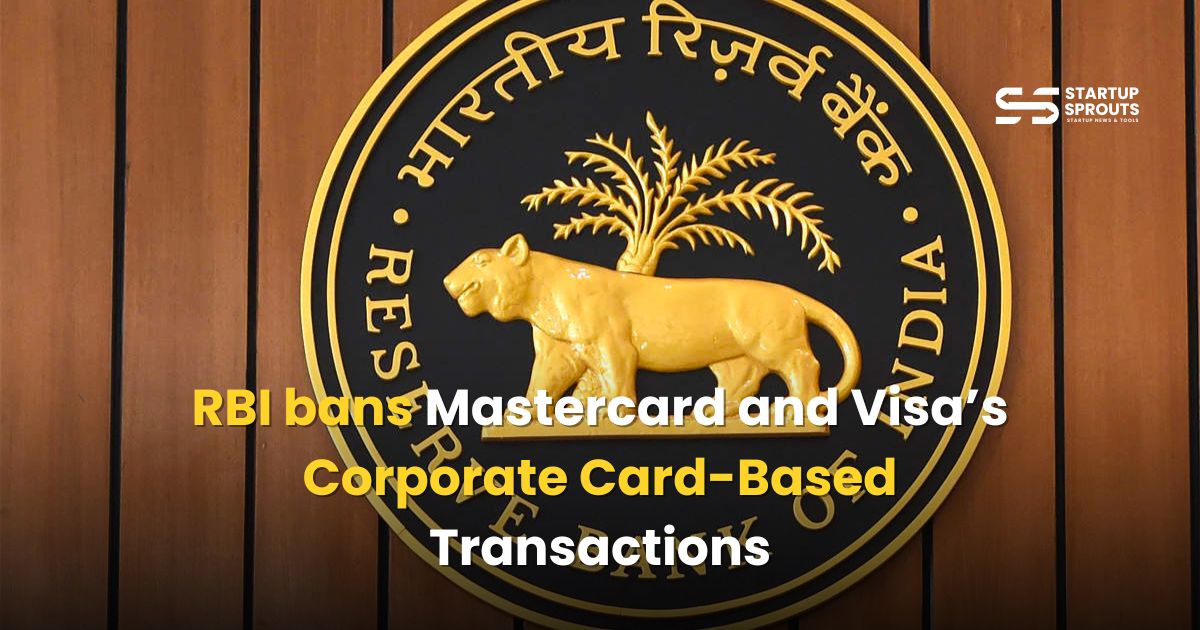RBI bans Mastercard and Visa’s Corporate Card-Based Transactions
The Reserve Bank of India (RBI) has instructed Mastercard and Visa to suspend corporate payments conducted via cards until further notice.
In a letter issued on February 8, the central banking authority directed these companies to halt all transactions involving business payment solution providers (BPSPs) until further notice.
Reports indicate that these entities and some banking institutions approached the RBI on Wednesday (February 14) seeking clarification regarding the appropriate business model for corporate card-to-business account money transfers.
Visa responded to the directive, stating that it had received communication from the RBI on Thursday, February 8, requesting information on the role of business payment solution providers (BPSPs) in commercial and business payments.
As a result, Visa has put all BPSP transactions on hold. The statement emphasized that BPSPs are regulated and licensed by the RBI under the PA PG (payment aggregator/payment gateway) guidelines.
Visa is currently in active discussions with the RBI and its ecosystem partners to ensure adherence to regulatory requirements.
While businesses typically conduct payments via net banking or real-time gross settlement (RTGS), some fintech companies like Enkash, Karbon, and Paymate facilitate payments through cards, such as payments to suppliers and vendors. Industry sources estimate that the total monthly transaction volume for such payments exceeds Rs 20,000 crore.
Enquiries to Enkash and Mastercard yielded only a few responses. However, Paymate disclosed that it had made alternate arrangements to comply with the directive.
The RBI has yet to disclose the rationale behind these measures. However, industry experts speculate that the regulator may be concerned about money flow to non-KYC-ed merchants through card transactions.
Additionally, suspicions of fraud or money laundering in high-value transactions may have prompted the action.
Banks typically issue commercial cards to large corporations for making payments to small businesses and are part of the former’s credit line. The RBI seeks clarity on the identity of the small businesses receiving these payments and whether proper KYC has been conducted on them.
There are concerns that some of these end-users may need to be genuine and may be part of the companies’ vendor/supplier ecosystem. Banks and fintech companies must provide clarification to the regulator regarding these accounts.
The RBI’s focus on stringent compliance mechanisms, particularly robust KYC solutions, underscores the need for businesses to prioritize compliance for sustainable growth, according to Ankit Ratan, CEO and co-founder of Signzy.
Financial institutions and fintech players must ensure that all financial transactions adhere to regulatory guidelines and that no fraudulent or unauthorised transactions occur on digital platforms.
Source: Financial Express
Related posts
Leave a Reply Cancel reply
You must be logged in to post a comment.
Hot Topics
Subscribe for newsletter
* You will receive the latest news and updates on your favorite celebrities!


Stay connected